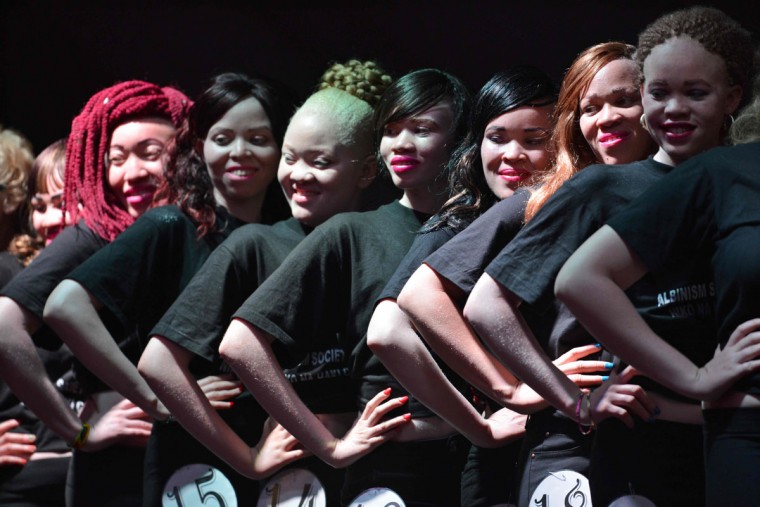In the world’s first contest of its kind, 10 men and 10 women in the Mr and Miss Albinism Kenya pageant took place this month in Nairobi.
Its motto was “Beauty Beyond the Skin.” The competition pulled thousands of people, include of high profiles, all came to celebrate people with albinism –who lack pigment in their skin, hair and eyes-and challenge stigma and persecution.

 “Even when I was dating, it was difficult for girls to say I’m handsome,” said Isaac Mwaura, Kenya’s first parliamentarian with albinism and founder of the Albinism Society of Kenya, which organized the pageant.
“Even when I was dating, it was difficult for girls to say I’m handsome,” said Isaac Mwaura, Kenya’s first parliamentarian with albinism and founder of the Albinism Society of Kenya, which organized the pageant.
“I knew I was handsome (but) people with albinism are seen as not beautiful, as not good-looking, and that has an effect on their self-esteem.”
Mwaura said albinism is seen as a curse in Kenya and all contestants have been taunted and called “zeru”, which means “ghost”, or “pesa”, a Swahili word for money, in reference to the value of their body parts.
“Our girls are not getting married,” Mwaura said. “They are beautiful women, and you find people don’t want to walk around town with them, so we thought, ‘Let’s use this opportunity to confront stigma and discrimination.'”
People with albinism are frequently shunned, attacked and even killed across Africa. In many countries, their body parts are believed to bring wealth and good luck and are prized in witchcraft for use in charms and magical potions.
Albinism is a congenital disorder affecting up to one in 15,000 people in sub-Saharan Africa.
Witch doctors are willing to pay as much as $75,000 for a full set of albino limbs for use in black magic, according to the Red Cross.
Attacks on albinos in Africa rose at the end of last year, linked to a growing demand from political hopefuls seeking good fortune in the run-up to elections in several countries, according to the U.N.’s first human rights expert on albinism.






No comments! Be the first commenter?